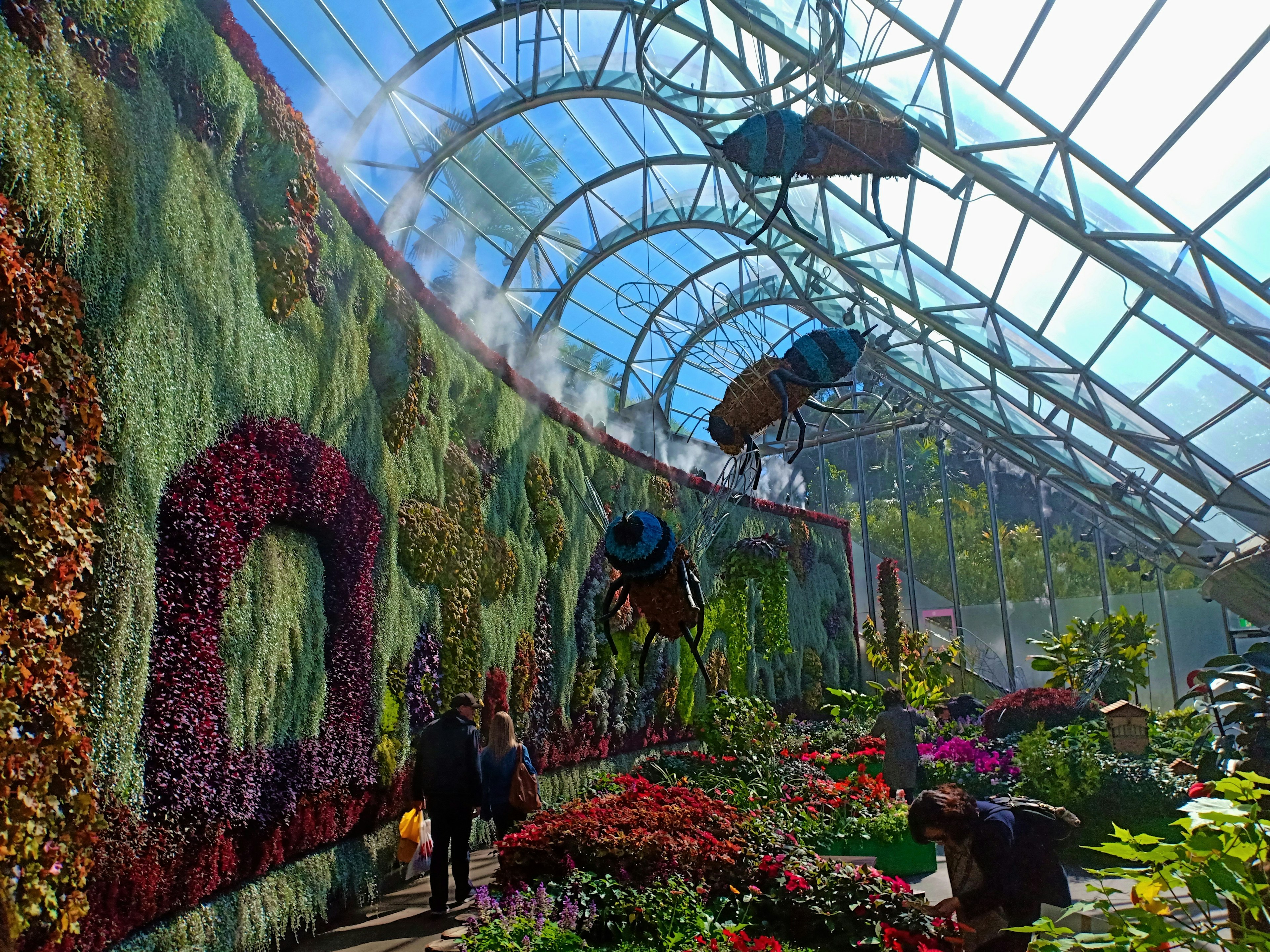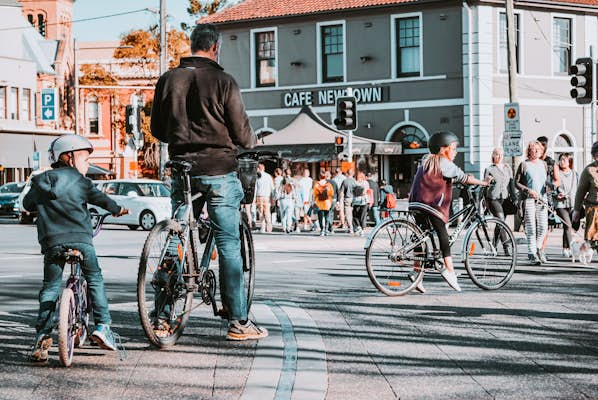As one of Australia’s biggest, busiest and most glamorous cities, Sydney is an intoxicating experience like no other. Naturally blessed in a way few other urban sprawls could match, it boasts a 60km string of stunning beaches and one of the most iconic harbor views on the planet.
Like elsewhere in the nation, the outdoors reigns supreme in Sydney. Whether it’s surfing the waves with the city skyline as your backdrop, enjoying a bracing coastal walk or enjoying sumptuous seafood on the outside terrace of one of the city’s many incredible restaurants..
This multicultural, hedonistic metropolis has numerous districts to explore, each with their own distinct character. We’ve got all the intel you need on Sydney’s key neighborhoods.
1. Newtown & the Inner West
Sydney’s coolest neighborhoods
Sydney’s sprawling Inner West is a mixed brew of students, urban hippies, lifestyle-focused professional couples and artists. It’s the place to go if you like your food plant-based, your wines organic and your cafes pooch-friendly. At its beginning is the University of Sydney, a bastion of old-world architecture dominating the tiny suburbs of Camperdown, Darlington and Chippendale. Its Chau Chak Wing Museum is a gloriously eclectic assemblage of artifacts.
As well as plenty of students, nearby Redfern has a significant Aboriginal community and is the birthplace of the urban Aboriginal civil rights movement in Australia. Glebe is also home to a long-established Aboriginal community, students and cool bookstores.
The most famous ‘burb of the Inner West, Newtown is lined with quirky boutiques, yoga studios and restaurants from budget-friendly Thai (bring your own wine) to modish bars serving upmarket grazing creations. It’s climbing the social rungs, but is still free-thinking and bolshy. Turn left out of the station to hit King Street’s vibrant vegan strip.
Each of the Inner West’s suburbs has a very different vibe, so it’s worth exploring a few of them. Hit Petersham for Portuguese, Leichhardt for Italian, Alexandria for warehouse chic, Marrickville for microbreweries and distilleries, and Erskineville for its endearing village vibe and crop of pubs and cafes.
Though hotel options are limited, staying here and absorbing the local vibe is a good choice, with the sights of the center just a short train ride away.

2. Bondi, Coogee & the Eastern Beaches
Best for singles and sun worshippers
Beautiful arcs of sand framed by jagged cliffs, the eastern beaches are a big part of the Sydney experience. Most famous of all is the broad sweep of Bondi Beach, with its distracting scenery and constant procession of beautiful people. This is where Sydney comes to see and be seen, preferably wearing as little as possible.
The unique flavor of Bondi has been greatly influenced by the Jewish, British and Kiwi immigrants who populated it before it became hip. Although popular with tourists, beyond the main road in Bondi, Campbell Parade, you’ll find cafes and pubs where Sydneysiders are in the majority.
South of Bondi and best reached via the spectacular coastal walk that hugs the cliffs and bays of this beautiful bit of Sydney real estate, Bronte is a steep-sided beach neighborhood, its bowl-shaped park strewn with picnic tables and barbecues. Further south is the concrete-fringed, safe swimming inlet of Clovelly, a great place to dust off your snorkel.
Next stop heading south is Coogee, with a wide and handsome beach, and lively backpacker and local scene in the pubs and shops. As well as the beaches, locals also love the iconic saltwater pools dotted along this stretch of coast.
The eastern beaches are prime hostel territory and also house a smattering of appealing boutique sleeps. There’s a glorious vibe here but it’s at least 30 minutes by bus to downtown Sydney.

3. Paddington, Surry Hills & Darlinghurst
Best for food and retail therapy
The rows of Victorian terrace houses of this once-working-class neighborhood remain, but they now command eye-watering seven-figure price tags and are home to wealthy young urban professionals, including a strong LGTBIQ+ community.
Style rules the roost, whether you are browsing fashion boutiques, keeping up with the very latest coffee trends or luxuriating in the tasting menu at that upmarket eating house everyone is talking about. This is a prime place to stay, with excellent boutique hotels and a neighborhood vibe within very easy reach of the city center.
The steep streets of Surry Hills house a cornucopia of some of Sydney’s best and most innovative restaurants, fabulous cafes and upmarket pubs. The warehouses lining the suburb’s moody lower canyons, near Central Station, are the remnants of the local rag trade and print industry. They now contain coffee shops, art galleries, interior-design outlets and apartments.
Just to the northeast of the city, Darlinghurst is synonymous with Sydney’s vibrant and visible LGBTIQ+ community. The shabby lower end of Oxford Street has traditionally been Sydney’s sequinned mile, and while it’s seen better days, it’s still home to most of the city’s dwindling gay venues and the Mardi Gras parade.
Paddington, also known as “Paddo,” is an elegant, expensive area of beautifully restored terrace houses and steep leafy streets. Built over an ancient walking track used by the Gadigal people, the suburb’s artery is Oxford Street, extending from nearby Darlinghurst but far more elegant in this stretch. The best time to visit is on Saturday, when the local artisan market in the grounds of a church complements the high street boutiques that sell designer labels – both local and international. Make sure you get off Oxford Street too; much of the suburb’s character and local life is further into the district.

4. Circular Quay and the Rocks
Best for historic buildings and major sights
At some stage you’ll almost certainly end up at the Rocks – you haven’t really been to Sydney if you don’t. The Rocks, unrecognizable from the squalid place it was in the convict era, now serves as an “olde-worlde” tourist focus.
There are a number of major Sydney sights in this very visitor-focused neighborhood including Sydney Opera House, the Museum of Contemporary Art, and the Royal Botanic Garden, but it’s also worth exploring away from the big-ticket attractions, strolling the characterful streets of Miller’s Point or admiring the waterfront perspectives offered by Barangaroo Reserve. Booking an Indigenous-led tour of the Botanic Garden or the Rocks area is highly recommended and will let you look beyond colonial history and begin to understand the ancient and profound relationship of the Gadigal people with this land.
Return at night to down a beverage in a historic pub or catch a show at a Walsh Bay theater. Some of Sydney’s swankiest hotels and restaurants can also be found here, with some special harbor views on offer.
The most spectacular way to get here is to get the train (or ferry) to Milson’s Point, then walk back into the Rocks across the Sydney Harbour Bridge (20 minutes). This gets you up close and personal with the city’s beloved “Coathanger,” with the roar of traffic on your right and a glorious Sydney panorama on your left.
5. Kings Cross, Potts Point and Woolloomooloo
Best for backpackers and budget travelers
Close to the city and with remnants of its red-light district history, Kings Cross attracts backpackers and Sydney eccentrics with proximity to the city and great places to eat and drink that won’t break the budget. Next door to “the Cross,” gracious, tree-lined Potts Point and Elizabeth Bay seem worlds away. And then down by the water the old sailors’ district of Woolloomooloo – you’re not a Sydneysider if you can’t spell it! – has glitzy wharf restaurants and a handful of characterful pubs.
It makes sense to start a reconnaissance of the area around the Cross itself, at the top of William Street, and let gravity draw you downwards. From the Coca-Cola sign that marks the entrance to the district, explore Darlinghurst Road – where touristy shops and backpacker hostels outnumber the dwindling strip-club scene these days – before strolling leafy Victoria Street and other upmarket avenues and cafes of Potts Point.
Down by the docks, Woolloomooloo has also cleaned up its act. Iconic Harry’s Cafe de Wheels and the navy base are still here, but drunken sailors are in shorter supply, and the wharf is a glitzy parade of see-and-be-seen-at restaurants. From here, it’s a very short hop to Sydney’s premier classical gallery, the Art Gallery of NSW. The spectacular Sydney Modern building – with a notable focus on the art of Indigenous Australia – opened here in December 2022.

6. Manly and the Northern Beaches
Best for the surf crowd
Laid-back Manly clings to a narrow strip of land between ocean and harbor beaches. With its shaggy-haired surfers and relaxed locals, it makes for a refreshing change from some of the stuffier harbor suburbs nearby. Manly’s name comes from Governor Phillip’s description of the confident Kai’ymay warriors he met while scouting the area in the early days of the penal colony.
The Corso is the main mall that connects Manly’s ocean and harbor beaches, where surf shops, burger joints, juice bars and pubs are plentiful. The refurbished Manly Wharf has classier pubs and restaurants, and there are some good cafes and small bars scattered around the back streets. To get here, take Sydney’s best ferry journey – essentially a harbor cruise without the commentary. It’s only half an hour from Circular Quay, making Manly a great option for those who want a relaxed place to stay. Beyond the beach, there are also great walks to and around North Head and the Manly Scenic Walkway to the Spit Bridge.
Stretching from Manly north to magnificent Palm Beach, the area known as “the Northern Beaches” marries suburbia with spectacular strips of sand, nearly all with excellent surfing when conditions are right. One good reason to base yourself out here would be to explore the local area which is short on world-famous attractions but rich with quintessential experiences. Climb to Barrenjoey Lighthouse for a classic picture of Palm Beach and Pittwater (in winter you can stop to spot whales migrating) or have a cold beer overlooking the sea at the glitzy boutique hotel, The Newport.

7. Darling Harbour, Chinatown and Pyrmont
Best for classic tourist attractions
Dotted between the flyovers is Darling Harbour, Sydney’s purpose-built tourist hub, opened in 1988 to mark the bicentenary of Australia’s beginning as a colony. Every other inch of this former dockland is given over to visitor amusements including Sydney Sea Life Aquarium and the excellent Australian National Maritime Museum, plus bars and restaurants (the best places to eat are in the north of the area, at the Barangaroo precinct).
Darling Harbour has a different atmosphere at night, with strolling couples replacing the sun-frazzled families. Firework displays occur with alarming frequency; most Saturday nights go off with a bang. The southern end of the Darling Harbour area melds into Sydney’s ever-expanding Chinatown, a buzz of food courts, restaurants and bubble tea joints that is one of the city’s most characterful and best-value districts to eat.
West of Darling Harbour, dive into Pyrmont for historic reconverted warehouses and a more local Sydney scene. Here, the Sydney Fish Market is a must-see if you’re a seafood fan and the Star Casino shelters several excellent restaurants in and around it. If you fancy stretching your legs, there’s some sensational harborside strolling here, far removed from the tourist beat. Pyrmont’s upmarket hotels make good places to stay, with easy city access.

